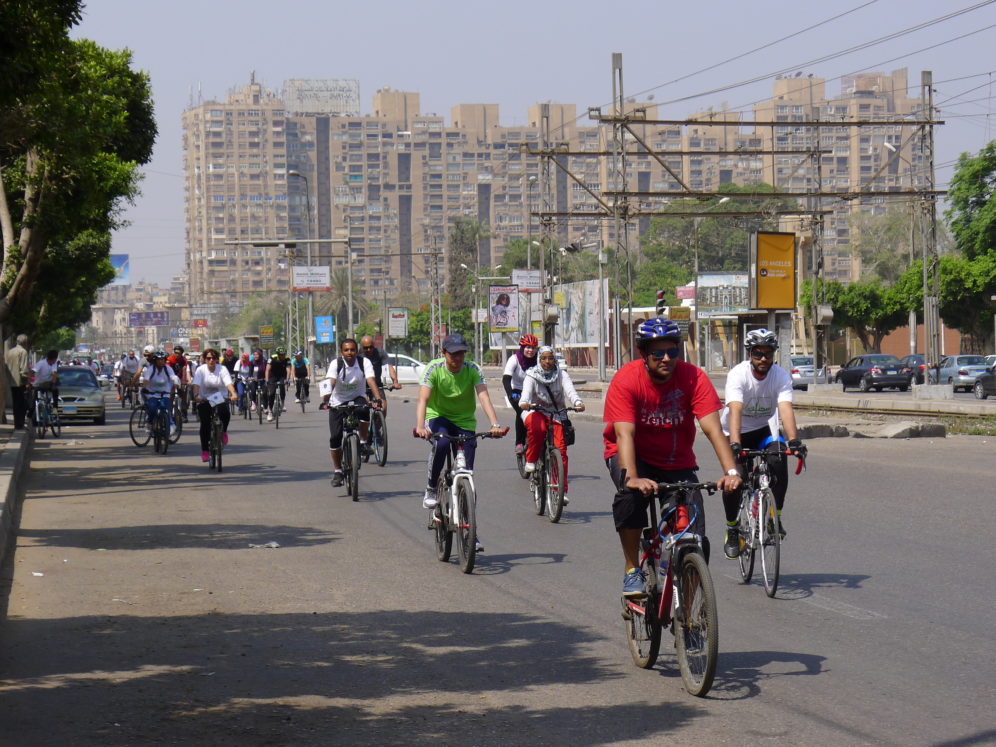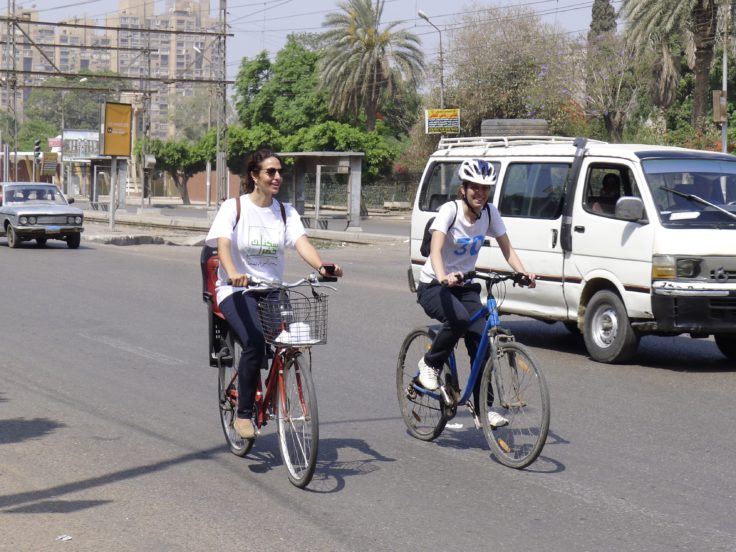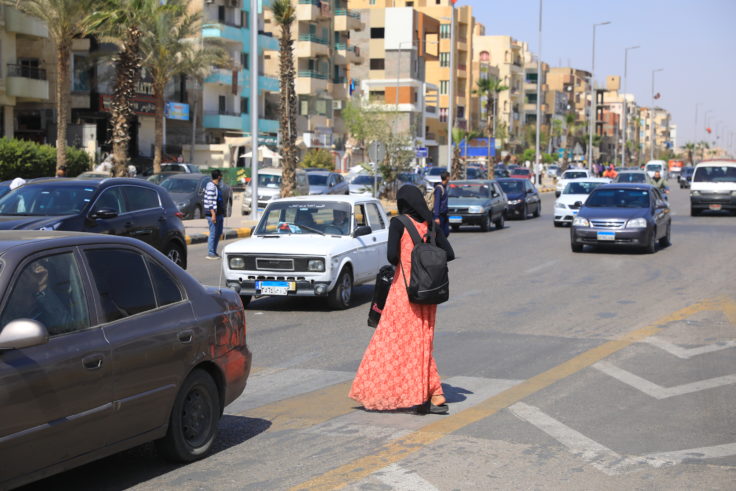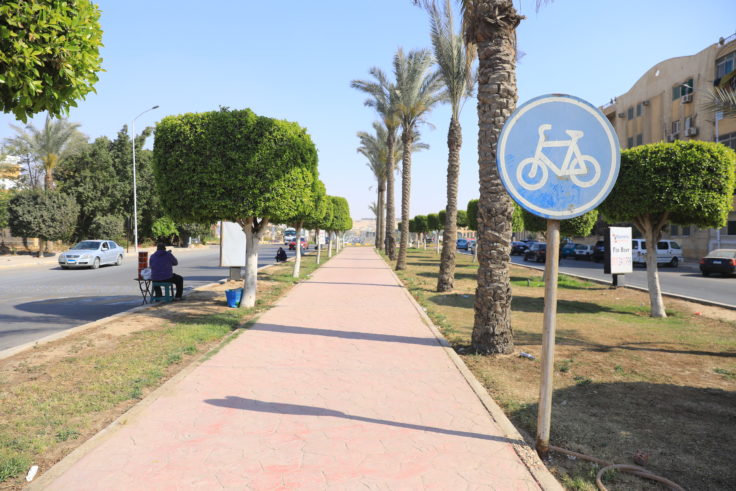
October 06, 2021
Insights from Cairo: Improving Mobility Through Bikeshare
By Carolyne Mimano, ITDP Africa
Amid the global bikeshare boom, the call for bikeshare systems in African cities is gaining momentum. The unprecedented rate of urbanization and increased vehicle usage has continued to exacerbate traffic congestion conditions in these emerging cities. However, with the continent’s growing young urban population, the majority of whom often walk or use public transport for their daily commutes, the potential for bikeshare is enormous.
Cairo, Egypt, is one city spearheading the implementation of bikeshare systems. Greater Cairo is a dense, sprawling metropolis known for its daunting traffic jams. The urban agglomeration comprises two governorates, Cairo and Giza, and has a population of approximately 20 million. A lack of sufficient rapid transit options and increasing ownership of private cars has led to daily traffic snarls in the metropolitan area. The soaring fuel prices across the country are also driving many daily commuters to explore alternative transport options. Cairo is on course to implement its first bikeshare system, with an initial fleet of 250 bicycles and a coverage area of 6.4 square kilometers covering downtown Cairo, El-Sayeda Zainab, Garden City, and Al Attaba.

To promote cycling as a safe and healthy transport alternative, the city is constructing 15 kilometers of physically separated bike lanes. The investment in high-quality cycling infrastructure is expected to make a significant difference for cyclists in Cairo and ultimately contribute to the growth of a dynamic cycling culture. Better cycling lanes increase the number of cyclists in the city and ridership for the bikeshare system. Bikeshare stations will be placed strategically, close to metro stations, bus stations, and public spaces to ensure easy access and promote multimodal options. Bicycle sharing has the potential to improve accessibility in central Cairo by creating first- and last-mile options which will extend the reach of the metro and bus systems. Approximately 500,000 commuters use the metro stations within the bikeshare coverage area. The Cairo Metro network, operated by the National Authority for Tunnels, spans 78 kilometers with three lines. The system carries around 4.1 million passengers per day and is reported to have the highest number of boardings per kilometer of any metro system in the world. The Greater Cairo bus network has approximately 450 official numbered bus and minibus routes, along with many informal microbus services. The largest operator, the Cairo Transport Authority, operates a fleet of over 3,000 buses and 950 minibuses. Improving first- and last-mile accessibility for these commuters is expected to ease congestion and encourage more people to switch to more sustainable modes of transport, especially for shorter trips. Highly directional movements, in which commuters emerge from metro stations and cycle to their destinations in the morning and follow the opposite pattern in the evening, may lead to challenges in maintaining an even supply of docks and cycles. The city plans to offer financial incentives for users to travel in the off-peak direction.
To encourage participation in the bikeshare system, the city will be embarking on an intense campaign focusing on the economic, environmental, and physical benefits of cycling. At present, cultural barriers prevent many women from cycling in Cairo. The efficiency of public transport services places different burdens on women and men, with the costs of poor public transport often being borne disproportionately by women who are less likely to have personal means of travel, making them more dependent on public transport. As women tend to chain trips, travel with goods or accompany relatives in a caregiver function, their needs in mobility differ from those of men, who often travel to commute. By providing another accessible mode of transit, the Cairo bikeshare system has the potential to expand women’s public transport options and make trips faster, thus saving time.


To explore how the Cairo bikeshare system can better meet the needs of women, ITDP held a focus group with women cyclists in Cairo in collaboration with UN-Habitat. The focus group revealed that women cycle for leisure or fitness and to run errands. However, many women avoid cycling due to a lack of safe infrastructure and public physical and verbal harassment. To promote cycling among women, the city plans to offer bikeshare membership discounts, hold educational cycling events, and involve women in the decision-making process.
There are unique challenges expected in the bikeshare rollout plan. In many African cities, motor vehicle users are not used to sharing the road with non-motorized transport users, and sometimes motorized traffic elements encroach on dedicated cycling infrastructure. Public information campaigns and traffic police serving as road safety ambassadors will help motor vehicle drivers to give right-of-way to all non-motorized transport users, including cyclists.
